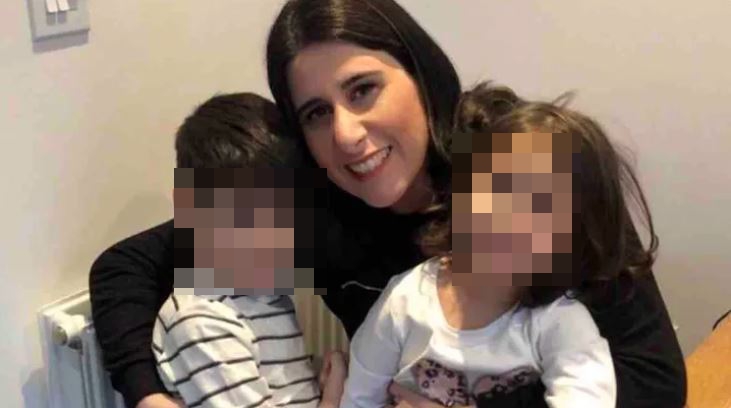A MUM has written her children notes to read after she dies of cancer, after Covid delayed her diagnosis.
Elaina Serghi, 40, was one of many cancer patients who felt left behind due to the pandemic – and is now paying the price.

Her family said “appointments were rescheduled and even cancelled”.
Elaina was given the devastating news at the end of 2020 that her cancer had spread, and her “fight has been taken from her”.
She is making the most of the time she has left with her two children, aged three and six years old.
Elaina, from Manchester, told The Mirror: “I want to be around for as long as I can, at my age I shouldn’t be writing notes for my kids to read if I die, it’s heartbreaking.
“I genuinely think it could have been different or at least not as bad.
“It’s spread to my stomach now, I’m just hoping that new drugs will give me a bit longer with my family, that’s all I can ask.
“It’s really bad, cancer patients are being neglected. It’s not fair what we’ve gone through, I’ve got two young children who need me.”
The mum-of-two said she had to wait for two months for a colonoscopy after falling ill in early 2020.
A colonoscopy looks to find the reason for bowel symptoms.
Under NHS rules in England, patients should wait no more than six weeks for the test in order to diagnose bowel cancer.
But in May 2020, during the first lockdown, 67 per cent of people referred for a colonoscopy had to wait more than the NHS target.
Elaina had to have an operation to remove a tumour that was put back by more than a week.
After the op, Elaina was too unwell to start chemotherapy.
Later in 2020, she learned the disease – which started in the colon – had spread to her lungs and stomach.
While it is not clear exactly how long Elaina waited between an urgent referral and the start of her treatment, targets are set at 62 days (two months).
But hundreds of thousands of patients are not being seen within this time.
Only 67 per cent of patients in England started their treatment within two months of urgently being referred by their GP with suspected cancer, against the 85 per cent target, in December 2021.
A GoFundMe page set up by Elaina’s family raised more than £50,000 for her to have private treatment.
It said: “Appointments were rescheduled, and even cancelled. Nevertheless, true to her shining character she remained upbeat and positive.
“Heartbreaklingly, the chance to continue this fight has been taken from her. The only treatment which offers hope is not available on the NHS [sic].
“It can only be obtained privately. Elaina’s only way to keep fighting is to seek funding for this treatment.
“As you can imagine, this is not cheap and while it didn’t come easy for Elaina to take this decision and reach out for help, her single-minded desire to survive, to live, has left her with no other choice.”
Speaking of her children, the relative wrote: “They need their mum in their lives for as long as possible so that she can continue to be there for them, care for them and teach them to be strong for whatever battles they may face in the future.
“The thought of a lack of funds preventing this breaks my heart as I am sure it will yours.”
The Covid pandemic has ravaged NHS cancer care, with a treatment backlog and missing diagnoses set to take years to sort.
The total number of people who have started cancer treatment in England since the start of the pandemic is still more than 31,000 lower than expected.
Analysis from Macmillan Cancer Support estimates the NHS in England would still need to work at 110 per cent capacity for further 16 months to catch up.
In response to the current treatment time figures, Minesh Patel, Head of Policy at the charity, said the data confirms the “huge challenge still facing the NHS”.
“We know this will be having a devastating impact on many people with cancer who are experiencing agonising delays and risk a worse prognosis,” he said.






